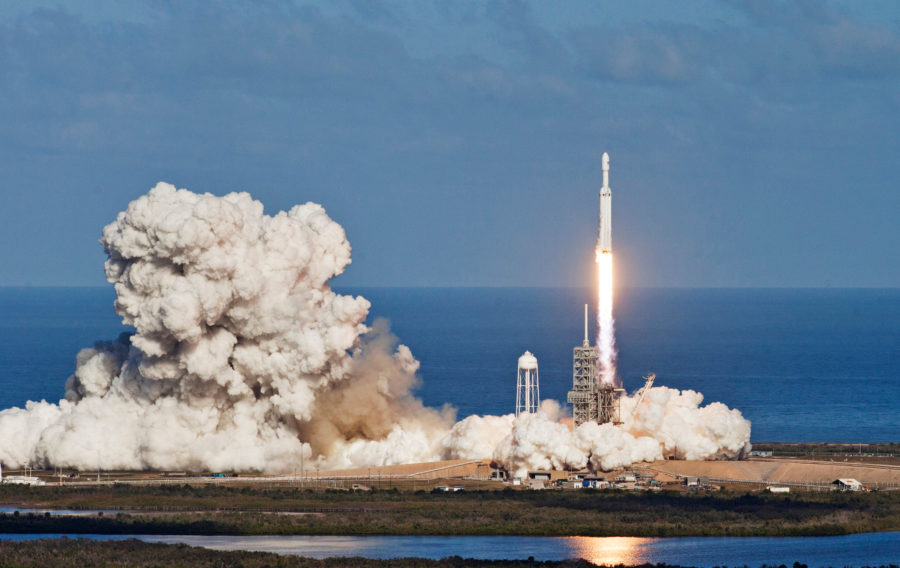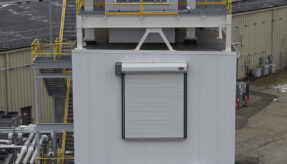
A larger number of commercial organisations have expressed an interest in space as a new and exciting sector.
The private sector has long been tied to government space exploration. In recent years, more companies have embarked on their own space exploration projects as the stratosphere has become easier to explore. Companies such as Virgin, Amazon, and SpaceX have announced projects ranging from commercial space flights to the colonisation of Mars. Private companies have also won contracts for future government space missions to design tech and perform services. Government agencies are increasingly working with private companies to realise their own ambitions and expand programmes.
Space exploration has long been associated with government agencies such as NASA but the market is expanding to include the private sector. NASA has major contracts with Boeing, SpaceX, and Lockheed Martin. NASA’s Artemis moon landing project has enlisted Lockheed Martin to construct the Orion lunar lander. One area of focus is on creating a reusable spacecraft, which is considered to be the next big step in space exploration. Reusable spacecraft allow for longer missions and the exploration of a larger part of our solar system. For future iterations of Artemis, NASA is expected to negotiate cost-plus-incentive-free ordering. Orion components are planned to be reused for Gateway. Boeing and SpaceX have won contracts for the transport of NASA astronauts to and from the International Space Station (ISS). Both companies are developing reusable capsules to transport humans in space. Boeing plans to test their CST-100 Starliner this year. NASA has committed to long-term contracts for Artemis. NASA has offered to purchase a seat on Boeing and SpaceX short-duration flights to the ISS. The flights are intended to take up to seven astronauts at a time up to the ISS during private flights, the first time the US will have taken its own astronauts into space in ten years. Many companies have submitted proposals for the contract to create NASA’s moon lander for the Artemis flight. Northrop Gunman will provide a system to bring the lander to the moon’s surface, Lockheed Martin will provide the Ascent Element vehicle, and Draper will operate descent guidance.
As an emerging industry, there is a varied level of legal government consensus on commercial space exploration. For example, the Ukranian Parliament passed a law allowing private space research next year, which had previously only been carried out by Ukranian state operators. India and China have been exploring the ‘Earth-Moon-Mars’ economy, ie. viewing them as a collective economic entity. The Chinese government’s proposed economic zone could be operational by 2050 if their ambitions are realised. China is expected to expand research into regular spaceflights. The private and public space sector in China has reached some impressive milestones, including one private firm becoming the first Chinese business to send a rocket into orbit. Portugal has ambitions for a spaceport to encourage endeavours like space tourism and telecommunications launches. Around 13 countries have created new space agencies to accommodate the private industry, such as Paraguay, Luxembourg, and the Philippines. Portugal is aiming to make the best of the growing space industry. Technological advances mean that smaller space agencies can create space technology and launch them into orbit at a much lower cost than in previous decades. Portugal Space launched earlier this year and will oversee the creation of a spaceport. Many countries are relaxing laws to encourage commercial space enterprises. The Netherlands have created new laws to encourage ride-share missions from Dutch launch sites and Australia started a space agency in response to small space enterprises.
One long-term ambition of some larger companies is the eventual colonisation of the Moon and Mars. SpaceX is to create a community on Mars, with the first cargo being launched in 2022. A reusable ship is planned to ferry people and cargo to the planet’s surface in stages. The ultimate goal is to create a self-sustaining civilisation on Mars. SpaceX is developing a reusable ship powered by methane and hydrogen. The first tests of the rocket began this year and the first flight could take place as early as 2021. The company aims to establish a Martian city by 2050. Virgin also plans to send humans into space. These ambitions are mainly focussed on commercial spaceflights in reusable vehicles. Virgin hopes that the future could involve orbiting hotels passengers could be taken to as well as laboratories. Orion Span is planning to launch a space station into orbit for the purpose of receiving paying guests as soon as 2021. The Aurora space station would be around the size of a private jet and able to accommodate up to four guests and two crew members. The Gateway Foundation has even bigger ambitions, planning an orbiting hotel able to accommodate around 400 people. Described as the ‘first spaceport’ by the private company, it is also being designed to act as the first step in the human colonisation of space. They plan to construct the station in space using robotics. They intend to build the station quickly so testing can start and it can turn a profit.
Recently, NASA announced plans to open the space station to private astronauts. As Boeing and SpaceX are developing capsules to transport passengers into space, NASA will allow for passengers to stay for up to 30 days aboard the International Space Station. The move is part of the organisation’s initiative to allow for commercial activity in space. In part, this is to reduce the running costs of the station. A trip to the station for a private customer could cost $50 million dollars depending on the length of stay. NASA hopes that commercialisation of the Space Station will allow their astronauts to focus more on research and expand innovation. The organisation cites private satellites as a turning point for research and hopes the same effect will apply to the orbiting lab. The US government invested in commercial spaceflight ten years ago via the NASA Commercial Crew Program. The programme allowed private enterprises to develop methods of transporting people into space. Amazon has also detailed plans to launch space tourists through its Blue Origin project. The ship is running test flights in preparation for short trips into space which will allow passengers to experience Earth from orbit. The company plans to create an affordable method of space travel and has ambitions to see humanity move farther out into the solar system in the future. Both Virgin and Amazon are facing delays in their proposed launches for commercial space travel, but both are running test launches of vehicles and planning their first travels soon with passengers onboard the spacecraft.
If you would like to join our community and read more articles like this then please click here.








